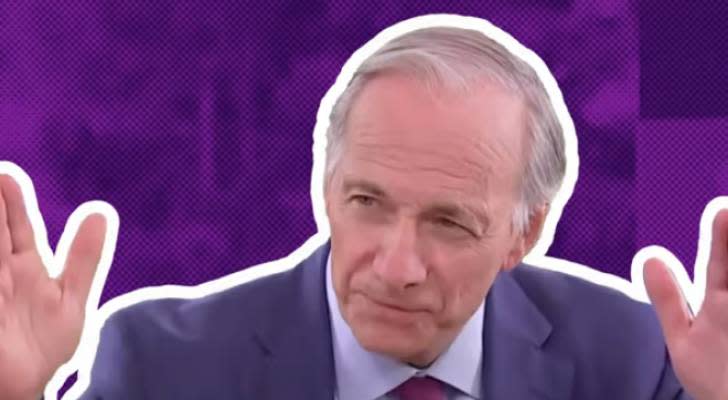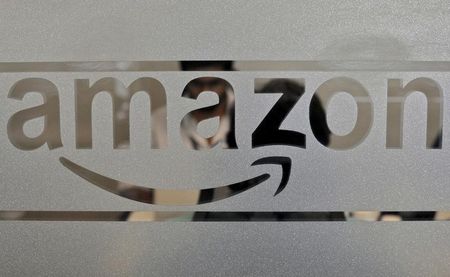Uncategorized
‘Reducing inflation will come at a great cost’: Ray Dalio warns that the Fed will likely trigger something far worse than high prices. Here’s what he likes today


Some say cash is king. But according to Ray Dalio, founder of the world’s largest hedge fund Bridgewater Associates, it may not be wise to keep too much of your investment money in cash these days.
“Cash is not a safe investment, is not a safe place because it will be taxed by inflation,” Dalio told CNBC last year.
But 40-year high inflation isn’t the only thing that’s concerning the billionaire investor at the moment.
In a LinkedIn post last month, Dalio warns that Fed’s tightening could lead to stagflation – an economic condition marked by high inflation, but without the robust economic growth and employment that usually come with it.
“My main point is that while tightening reduces inflation because it results in people spending less, it doesn’t make things better because it takes buying power away. It just shifts some of the squeezing of people via inflation to squeezing them via giving them less buying power,” he writes.
“[O]ver the long run the Fed will most likely chart a middle course that will take the form of stagflation.”
If you are wondering what to do given this gloomy outlook, here’s a look at some of the biggest holdings at Dalio’s hedge fund.
Don’t miss
Vanguard FTSE Emerging Markets ETF (VWO)
According to Bridgewater’s latest 13F filing to the SEC, the fund held 22.72 million shares of Vanguard FTSE Emerging Markets ETF at the end of March. With a market value of around $1.05 billion at the time, VWO was the largest holding in Dalio’s portfolio.
VWO tracks the FTSE Emerging Markets All Cap China A Inclusion Index and provides investors with convenient exposure to stocks in emerging markets like China, Brazil, and South Africa.
The ETF holds more than 5,000 stocks. Its top holdings include industry heavyweights like chipmaking giant Taiwan Semiconductor Manufacturing, Chinese tech behemoth Tencent Holdings, and Indian multinational conglomerate Reliance Industries.
In a recent conversation with another investing legend, Jeremy Grantham, Dalio said he’s looking at countries with good income statements and balance sheets that can weather the storm.
“Emerging Asia is very interesting. India is interesting,” he adds.
Procter & Gamble (PG)
Bridgewater’s second-largest holding is a defensive stock with the ability to deliver cash returns to investors in different economic environments: Procter & Gamble.
In April, P&G’s board announced a 5% dividend increase, marking the company’s 66th consecutive annual payout increase. The stock currently offers an annual dividend yield of 2.5%.
It’s easy to see why the company is able to maintain such a streak.
P&G is a consumer staples giant with a portfolio of trusted brands like Bounty paper towels, Crest toothpaste, Gillette razor blades, and Tide detergent. These are products that households buy on a regular basis, regardless of what the economy is doing.
Alibaba Group Holding (BABA)
Chinese tech stocks haven’t exactly been market darlings. Ecommerce giant Alibaba Group, for instance, is down 40% over the last 12 months.
But Bridgewater Associates still likes the company. As of Mar. 31, it owned 7.5 million shares of Alibaba — a stake valued at $813.9 million at the time.
The downturn in Alibaba shares could give contrarian investors something to think about. In fact, we might be at an inflection point already.
According to the latest earnings report, Alibaba’s revenue grew 9% year over year to $32.2 billion in the March quarter. Its adjusted earnings of $1.55 per share handsomely beat Wall Street’s expectation of $1.07 per share.
Since that earnings report, Alibaba stock has surged nearly 50%.
What to read next
Sign up for our MoneyWise newsletter to receive a steady flow of actionable ideas from Wall Street’s top firms.
US is only a few days away from an ‘absolute explosion’ on inflation — here are 3 shockproof sectors to help protect your portfolio
‘There’s always a bull market somewhere’: Jim Cramer’s famous words suggest you can make money no matter what. Here are 2 powerful tailwinds to take advantage of today
This article provides information only and should not be construed as advice. It is provided without warranty of any kind.
Uncategorized
BofA Securities maintains Amazon.com at ‘buy’ with a price target of $154.00
Uncategorized
Six people in critical condition, one still missing after Paris blast – prosecutor

5/5
© Reuters. French firefighters and rescue forces work after several buildings on fire following a gas explosion in the fifth arrondissement of Paris, France, June 21, 2023. REUTERS/Gonzalo Fuentes
2/5
PARIS (Reuters) – Six people remained in a critical condition and one person was believed still missing on Thursday, one day after a blast ripped through a street near Paris’ historic Latin Quarter, the city’s public prosecution office said. “These figures may still change,” prosecutor Maylis De Roeck told Reuters in a text message, adding that around 50 people had been injured in the blast, which set buildings ablaze and caused the front of one to collapse onto the street. Of two people initially believed missing, one has been found in hospital and is being taken care of, the prosecutor said, adding: “Searches are ongoing to find the second person.” Authorities have not yet said what caused the explosion, which witnesses said had followed a strong smell of gas at the site. The explosion led to scenes of chaos and destruction in the historic Rue Saint Jacques, which runs from the Notre-Dame de Paris Cathedral to the Sorbonne University, just as people were heading home from work. It also destroyed the facade of a building housing the Paris American Academy design school popular with foreign students. Florence Berthout, mayor of the Paris district where the blast occurred, said 12 students who should have been in the academy’s classrooms at the time had fortunately gone to visit an exhibition with their teacher.
“Otherwise the (death toll) could have been absolutely horrific,” Berthout told BFM TV. She said three children who had been passing by at the time were among the injured, although their lives were not in danger.
Uncategorized
4 big analyst cuts: Alcoa & DigitalOcean shares drop on downgrades

© Reuters.
Here is your Pro Recap of the biggest analyst cuts you may have missed since yesterday: downgrades at Alcoa, DigitalOcean, Teleflex, and Xcel Energy.InvestingPro subscribers got this news in rapid fire. Never be left in the dust again.Alcoa stock drops on Morgan Stanley downgrade Alcoa (NYSE:) shares fell more than 3% pre-market today after Morgan Stanley downgraded the company to Underweight from Equalweight and cut its price target to $33.00 from $43.00, as reported in real time on InvestingPro.The firm sees a significant decline in consensus estimates, and as negative earnings revisions materialize, it believes the stock will face downward pressure and underperform.The analyst’s estimates for EBITDA in Q2, 2023, and 2024 are substantially lower than the consensus. The stock is currently trading above its historical average. The firm said its downward revisions in earnings estimates and price target are attributed to the company’s high operating leverage to aluminum prices.DigitalOcean stock plunges on downgradePiper Sandler downgraded DigitalOcean (NYSE:) to Underweight from Neutral with a price target of $35.00. As a result, shares plunged more than 5% pre-market today.The company reported its last month, with revenue beating the consensus estimate, while EPS coming in worse than expected. Furthermore, the company provided a strong outlook, which was above the Street estimates.2 more downgradesTeleflex (NYSE:) shares fell more than 3% yesterday after Needham downgraded the company to Hold from Buy, noting that UroLift expectations may still be too high.According to Needham, their checks indicate that urologists are reducing their use of UroLift due to its retreatment rates, reimbursement cuts, and increasing use of competing procedures. This is also supported by their Google Trends data analysis, which indicates decreasing search interest in UroLift.BMO Capital downgraded Xcel Energy (NASDAQ:) to Market Perform from Outperform and cut its price target to $64.00 from $69.00 to reflect the lower-than-expected terms of the company’s regulatory settlement in Colorado.Amid whipsaw markets and a slew of critical headlines, seize on the right timing to protect your profits: Always be the first to know with InvestingPro.Start your free 7-day trial now.

 Forex3 years ago
Forex3 years agoForex Today: the dollar is gaining strength amid gloomy sentiment at the start of the Fed’s week

 Forex3 years ago
Forex3 years agoUnbiased review of Pocket Option broker

 Forex3 years ago
Forex3 years agoDollar to pound sterling exchange rate today: Pound plummeted to its lowest since 1985

 Forex3 years ago
Forex3 years agoHow is the Australian dollar doing today?

 Cryptocurrency3 years ago
Cryptocurrency3 years agoWhat happened in the crypto market – current events today

 World3 years ago
World3 years agoWhy are modern video games an art form?

 Commodities3 years ago
Commodities3 years agoCopper continues to fall in price on expectations of lower demand in China

 Economy3 years ago
Economy3 years agoCrude oil tankers double in price due to EU anti-Russian sanctions
























